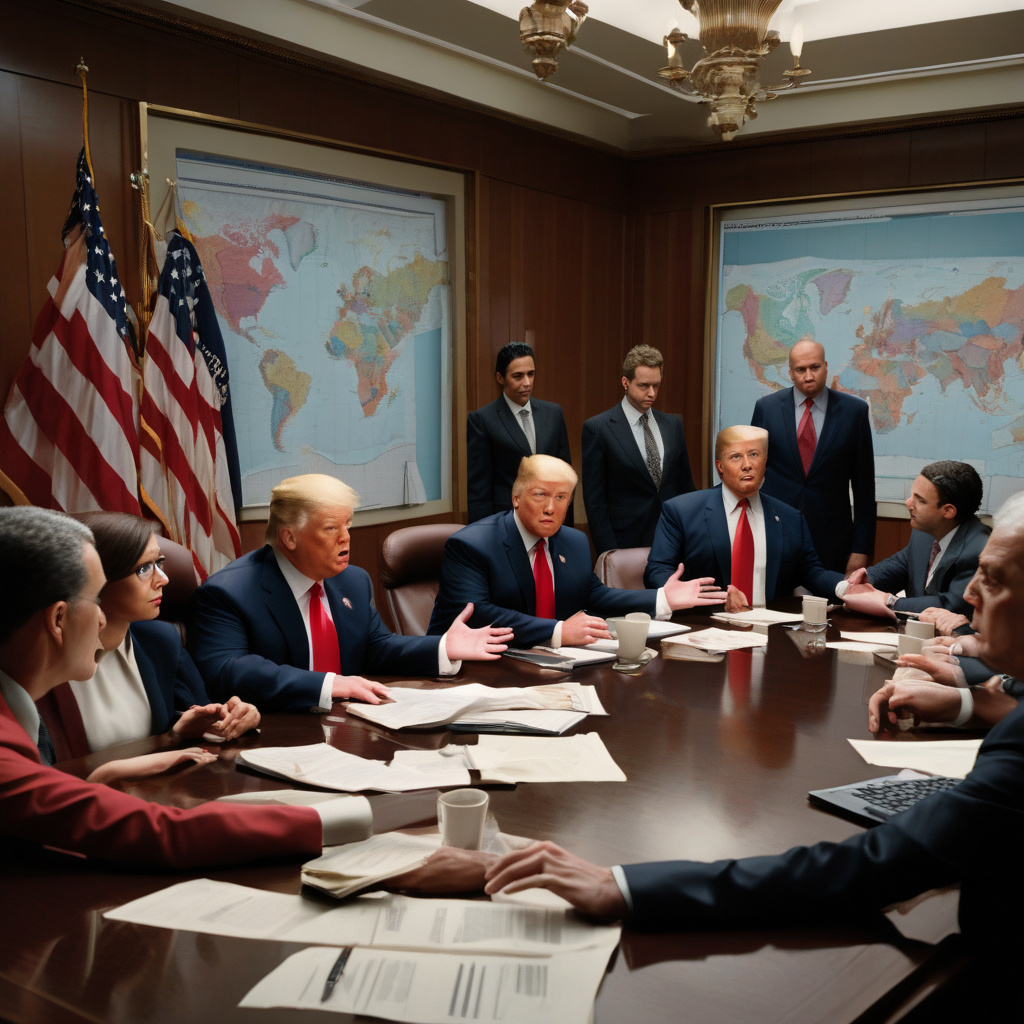Trump Orders Review of Tariffs Over Digital Service Taxes
In a move that could potentially impact imports from France, Canada, and several other nations, President Trump has ordered a review of tariffs related to digital service taxes. This decision comes amid growing concerns over the taxation of digital services, particularly those provided by multinational tech companies.
The issue of digital service taxes has been a contentious one, with many countries implementing their own versions in an effort to capture revenue from tech giants that operate within their borders. These taxes are typically levied on the revenue generated from digital services such as online advertising and the sale of user data, which are often provided by companies based in the United States.
France has been at the forefront of this issue, passing a digital services tax last year that specifically targets large tech companies. This move drew sharp criticism from the United States, which argued that the tax unfairly targeted American businesses. In response, the US Trade Representative launched an investigation into the French tax and proposed retaliatory tariffs on French goods such as cosmetics and handbags.
Canada and several other countries have also implemented or are considering digital service taxes, further complicating the global trade landscape. President Trump’s order to review tariffs on imports from these countries signals a potential escalation in the ongoing trade disputes surrounding digital services.
The implications of these tariffs could be far-reaching, affecting not only the companies directly involved in the digital economy but also consumers who rely on imported goods for everyday use. For example, a tariff on French wines or Canadian maple syrup could lead to higher prices and reduced availability for American consumers.
Moreover, the review of tariffs over digital service taxes highlights the complex interplay between trade policy and the digital economy. As technology continues to reshape industries and business models, governments around the world are grappling with how to tax and regulate digital services in a way that is fair and equitable.
One possible solution to this issue is the negotiation of international agreements on digital taxation. The Organization for Economic Cooperation and Development (OECD) has been leading efforts to develop a framework for taxing digital services that would apply across multiple countries. However, progress on this front has been slow, with disagreements over key issues such as which companies should be subject to the tax and how the revenue should be allocated.
In the absence of a coordinated global approach to digital taxation, individual countries are taking matters into their own hands, leading to a patchwork of regulations and potential trade conflicts. The review of tariffs ordered by President Trump is just the latest example of how governments are responding to the challenges posed by the digital economy.
As the debate over digital service taxes and tariffs continues to unfold, it is clear that the intersection of technology, trade, and taxation will remain a key issue for policymakers and business leaders alike. Finding a balance between fostering innovation and ensuring a level playing field in the digital economy will be crucial in shaping the future of global trade.
#DigitalTax, #Tariffs, #GlobalTrade, #TechCompanies, #EconomicPolicy
